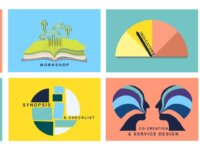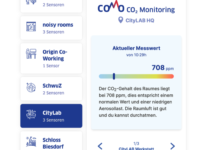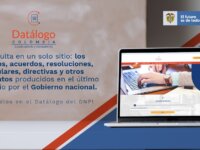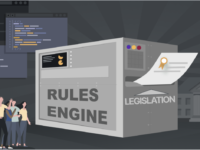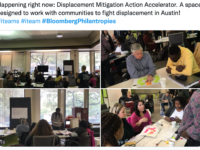In the VUCA (volatility, uncertainty, complexity and ambiguity) world, the tasks of the government are interconnected and require cross-border collaboration and dialogue within ecosystems. However, one of the key challenges is the lack of knowledge and easy-to-deploy tools. As partners of Work2.0Lab (Työ2.0Lab), we co-created and implemented Ecosystem School 1.0. Its purpose was to develop ecosystem thinking, capabilities and tools to support phenomenon-oriented work within ecosystems.
Innovation Tag: Methods and Tools
In COMo, the CO2 concentration (CO2 = Carbon Dioxide) serves as a measure for indoor air quality and aerosol pollution; the latter correlates with the potential (COVID) viral load. Objective CO2 readings via networked sensors enable operators to control the indoor air quality and thus reduce the risk of infection for visitors. Published data allow visitors to make decisions about visiting the facility.
All content is available under open source licenses (MIT, BSD, Creative Commons).
CGR has a great amount of available data that need to be exploited to improve its work, while deepening the digital transformation of the State to improve its quality.
The aim is to enhance data analysis through the use of algorithms to anticipate risks in the fight against corruption, as well as to improve the channels for citizen complaints.
We apply the use of data and technologies in our daily work, thus impacting the State.
The initiative was developed in response to the dispersion of sources for consulting information on the documents produced by the national government. The solution, a data catalog (datalog), generates an institutional memory of open consultation on different aspects that the outgoing government delivers to the incoming one. The tool is innovative in applying machine learning technologies to process, organize and present a large volume of documentary information in an agile and simple way.
Blockchain is transforming the world and we created the first pilot to experiment with this technology, promoting this transformation in the Colombian State entities making it more efficient, transparent and agile. We seek to accompany and promote projects that generate better services and processes within the entities; learning and documenting the entire process.
Digitalization is key to the present and future of local commerce in any city. For digitalization to be effective, it must be personalized, thinking about the uniqueness of commerce, connected with the local and with the world to achieve greater competitiveness. Like the "Sherpas" in the mountains, the "Digital Sherpas" in Las Rozas guide businesses in digitalization and the multichannel and gamified platform "Las Rozas Fans" helps them connect to the world in an attractive and easy way for…
The Australian Government - Dept of Finance sponsored a Proof of Concept (PoC) that looked at how Rules as Code (RaC) might be provided as a shared utility that can be used to deliver simpler, personalised digital user journeys for citizens. RaC is the process of taking legislation and regulations and turning them into machine-readable code. It provides many benefits to citizens and government, including greater reuse, less duplication, greater transparency and accessibility of rules.
A new Area of Management (AoM) on Innovation has been integrated into the Management Accountability Framework (MAF). This is a tool used to promote management excellence in innovation for Canadians by assessing an organization’s ability to plan, generate and use rigorous evidence to inform decision-making on high-impact innovations. This is innovative in that it provides a clear roadmap to building thriving, innovative organizations and outlines a distinct role for executives in the process.
Austin has experienced rapid growth yet many underserved Austinites have found themselves forced to move when they don't want to, or experiencing homelessness. The City didn't have an anti-displacement strategy. We created a first set of anti displacement insights, accelerated community co-created anti displacement strategies, developed an interactive data tool to stimulate driven approaches, and co-created an equity tool to mitigate displacement risk heightened by its own transit investments.
The Future Mentors programme is a reversed mentoring programme in which a small group of young people mentor a decision maker from their own city about the hopes, dreams, and fears of the young generation regarding the future of their city. The programme is a platform for youth in cities to get into a dialogue with the decision makers and get their concerns and wishes heard. Twenty-six cities around Europe participated in the programme in 2022.

